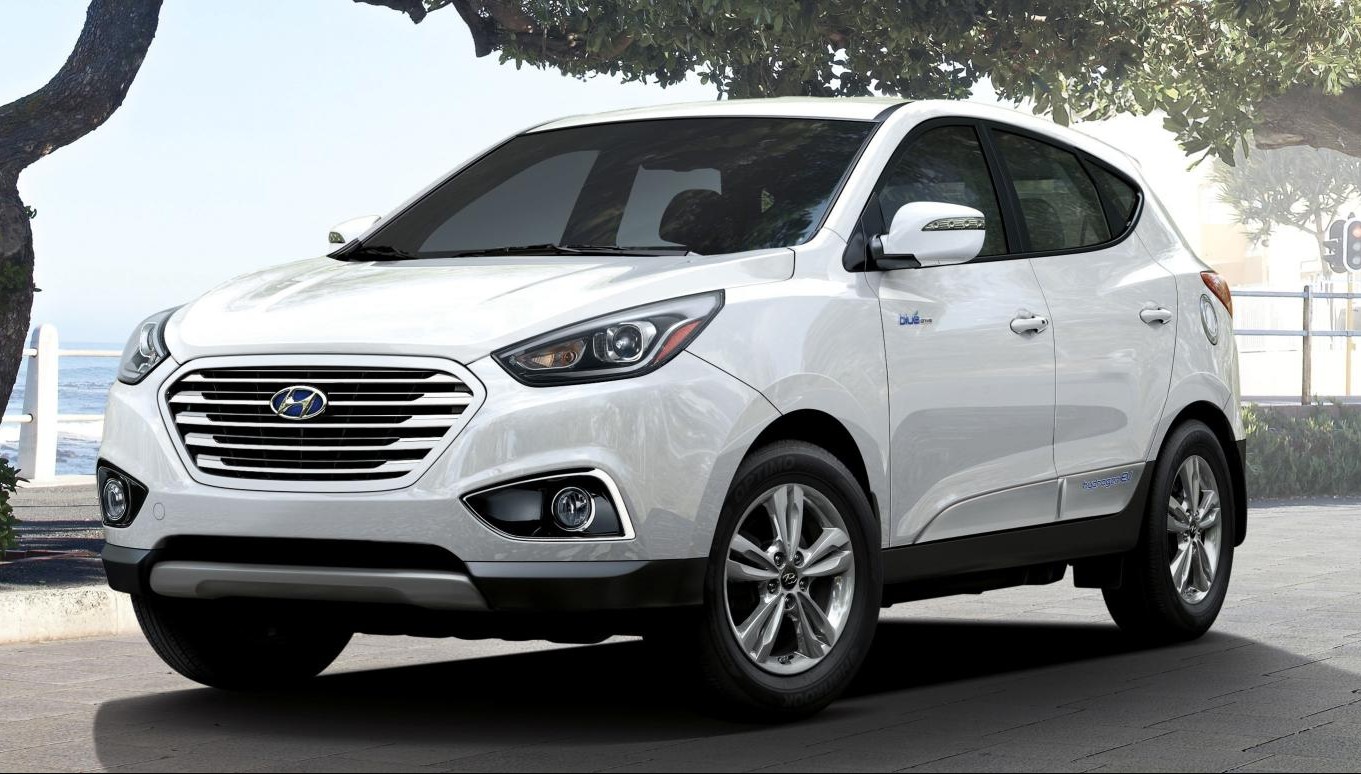
FCEV Recognized for Innovation in Energy and Sustainability
FOUNTAIN VALLEY, Calif., April 29, 2015 – The Tucson Fuel Cell, Hyundai’s hydrogen powered, zero-emissions vehicle, earned a Silver Edison Award in Energy and Sustainability at the Edison Awards Gala on Thursday, April 23. The annual award – named after Thomas Alva Edison – honors the best in innovation and excellence in the development of new products and services. Hyundai’s Tucson Fuel Cell is the first mass-produced hydrogen powered electric vehicle currently available for consumer lease in the U.S.
“For over 15 years Hyundai has worked on the development of fuel cell vehicles, with the goal of being a zero-emissions vehicle with no compromise, said Mike O’Brien, vice president corporate and product planning, Hyundai Motor America. “Receiving this honor from a prestigious program like the Edison Awards is a reflection of the visionary leadership and hard work from some of the best engineers and designers in the industry.”
According to the Edison Awards, the recognition has become one of the highest accolades a company can receive in the name of innovation and business. “Our judges recognized our winners as true innovators,” said Frank Bonafilia, executive director of the Edison Awards.
The ballot of nominees for the Edison Awards was judged by a panel of more than 3,000 leading business executives including past award winners, academics and leaders in the fields of product development, design, engineering, science and medical.
The Silver Edison Award compliments the roster of accolades the Tucson Fuel Cell has earned since the zero-emission vehicle entered the U.S. market last summer. The fuel cell technology effectively replaces the battery pack used in an electric vehicle by generating electricity from hydrogen through an electrochemical process that does not involve hydrogen combustion, with no moving parts within the fuel cell stack. The Tucson Fuel Cell maintains the day-to-day flexibility and experience of a gasoline-powered Tucson with no compromise for the consumer.
TUCSON FUEL CELL DRIVERS FROM SOUTHERN CALIFORNIA ACCUMULATE SUFFICIENT MILEAGE TO REACH THE MOON EMISSIONS-FREE
Cumulative Zero-emissions Mileage by Fuel Cell Drivers Surpasses 238,900 Miles
FOUNTAIN VALLEY, Calif., February 25, 2015 – Hyundai Tucson Fuel Cell drivers have surpassed an impressive threshold, recently accumulating more than 238,900 miles on the roads of Southern California, all while emitting only clean water vapor. The average distance from the earth to the moon varies with the lunar orbit, with 238,900 miles as an average estimated distance. Hyundai has delivered more than 60 Tucson Fuel Cells since its introduction as the first mass-produced fuel cell in the U.S. market in June 2014.
“Surpassing this fundamental stellar threshold gives us a glimpse into the unlimited zero-emissions potential for Hyundai fuel cells,” said Mike O’Brien, vice president, corporate and product planning, Hyundai Motor America. “If a small fleet of hydrogen-powered fuel cell vehicles can accumulate this kind of mileage in just a few short months, one can only imagine the potential for a zero-emissions hydrogen vehicle future.”
Hyundai service engineers, with permission from vehicle owners, receive periodic mileage updates from Tucson Fuel Cell vehicles in Southern California, allowing them to calculate cumulative mileage totals as needed to assess fuel cell stack maintenance status.
TUCSON FUEL CELL ADVANTAGES
The Hyundai Tucson Fuel Cell CUV has a number of advantages. The energy-rich hydrogen fuel provides an estimated driving range of 265 miles between fill-ups, similar to many gasoline vehicles. Further, both fuel cell driving range and vehicle performance are minimally affected by either extreme hot or cold ambient temperatures, giving owners an extra measure of peace of mind as they go about their day. Even more important for consumers transitioning for gasoline vehicles, the Tucson Fuel Cell can be refilled with hydrogen in about the same time as a typical gasoline vehicle of the same size, less than 10 minutes.
Finally, fuel cell vehicles, due to their compact, relatively lightweight fuel cell stack design, are completely production scalable from very small to very large vehicles, such as urban-focused mini-compact cars all the way to full-size buses and trucks.
